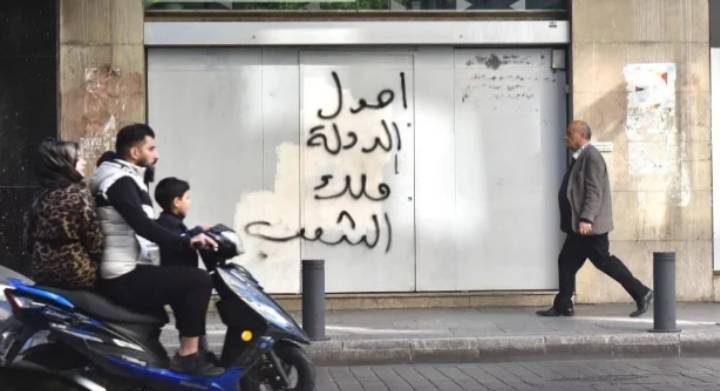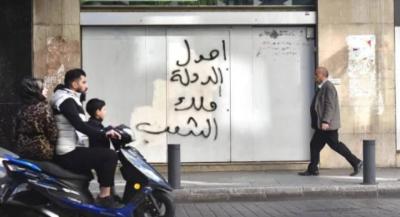The scene of "customers-depositors" was not the same across all banks yesterday on the first day of resuming banking activities after the suspension of the banking strike, which is expected to continue until the evening of next Friday, according to a threat from the banks' association. There was a noticeable difference in the level of attendance and crowding between different banks, in addition to the variation in services offered, depending on each bank’s ability to secure "dollars" from the Central Bank to enable public sector employees to receive their salaries via the Sayrafa platform. The commonality among the banks is their ability to complete all banking operations for their clients both abroad and domestically (transfers and issuing bank checks for local transactions), alongside the indefinite halt of the Sayrafa platform for the private sector. Meanwhile, several banking sources have not confirmed to "Nidaa Al-Watan" the possibility of resuming the strike next week, noting that “this matter depends on the communications between the banks' association and the government, and hopefully all will be well.”
At the banks' entrances and inside, two scenes were observed: a normal and smooth banking workday with employees receiving their salaries via the Sayrafa platform, accompanied by minimal crowding (gatherings no larger than ten people). This scenario was prevalent in all branches of Bank of Lebanon and the Middle East and Fransabank in the areas of Baabda, Hadath, and Verdun.
**Statements from Transaction Owners**
Depositor Fadi –A told "Nidaa Al-Watan" that he was the first customer to enter the Bank of Lebanon and the Middle East branch in Baabda (based on an appointment with the relevant employee) to complete international wire transfers. He expected the process to take longer due to the recent strike, but the transaction was completed as usual. Joseph Armoni mentioned to "Nidaa Al-Watan," "I came to the bank feeling anxious that they might refuse to give me a check in the Lebanese pound to pay administrative fees. My concern arose from the confusion between the banks and the judiciary regarding checks, but everything went smoothly, and it did not take much time."
Jano Ghali (a public sector employee) noted to "Nidaa Al-Watan" that she was able to receive her salary via Sayrafa within an hour, as the crowding was not significant. At the Fransabank branch in Verdun, the situation was similar, with bank employees completing banking services for customers by appointment. Public sector employees were receiving their salaries via Sayrafa amidst minimal crowding. Walid Bou Derghem explained to "Nidaa Al-Watan" that he had "spoken with the employee to set the appointment prior to coming to the bank, and he waited a little until it was his turn to complete his transaction abroad."
Conversely, the Lebanese French Bank branch in Haret Hreik experienced significant crowding inside and outside. Inside, dozens of depositors awaited the completion of their banking transactions or to withdraw the remaining "quota" allowed by Central Bank regulations. Mustafa Hamza recounted to "Nidaa Al-Watan" that he arrived at the bank at nine in the morning to pay a bank receipt and waited over an hour and a half due to the crowd.
On the branch’s sidewalk, dozens of public sector employees stood waiting for permission to enter to collect their salaries, but to no avail. At 10:30 AM, one employee came out to inform them that the Sayrafa platform for employees was still suspended and could potentially resume operations at eleven or twelve o'clock, stating that she would provide them with the branch's phone number to call and confirm before coming. At that time, the voices of the waiting individuals raised in protest, as they often call to set appointments but receive no answers. A woman named Hala Alouh interjected to say to the employee: “I am not going anywhere, and I will wait at the door until the scheduled time. You know my health condition, and it is crucial that I buy my medication today.”
At the Lebanese Swiss Bank branch in Hadath, an active but not pressing banking day was recorded as the bank did not open Sayrafa for employees, with expectations to provide this service starting today, Tuesday. The banking services provided included issuing bank checks to clear customs transactions, withdrawing what remains of the monthly quota determined by Central Bank regulations, and depositing checks to settle debts.
**Operations During the Strike?**
What banking tasks were performed by employees during the strike? Especially since many bank employees continued to go about their jobs as usual. The answer to this question has two aspects: first, some banks completely closed their doors and their employees stopped working throughout the strike, such as the Lebanese Swiss Bank. Other banks, like the Bank of Lebanon and the Middle East and the Lebanese French Bank, allowed their employees to continue internal administrative work during the strike to complete postponed administrative transactions. Meanwhile, other banks proceeded to conduct transactions and international wire transfers in "fresh" dollars since their commission was in "fresh" dollars, which they were careful not to miss.
**Restlessness Among Bank Employees**
It should be noted that there is a sense of restlessness among employees of more than one bank due to management's failure to meet their demands for salary increases in line with the rising market dollar price. One employee describes the situation to "Nidaa Al-Watan" as “the bank management pushing employees towards resigning indirectly to save on paying them compensation.” He adds, “I have been working at the bank for 22 years; before the crisis, my salary was 1500 dollars, but today it does not exceed 300 dollars. This amount is certainly insufficient to cover my bills and school fees, not to mention food, even with the help of my wife who also works but earns less than I do, knowing that some of my colleagues earn no more than 150 dollars.”




